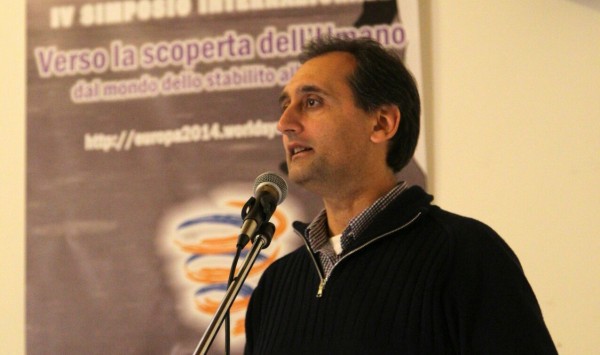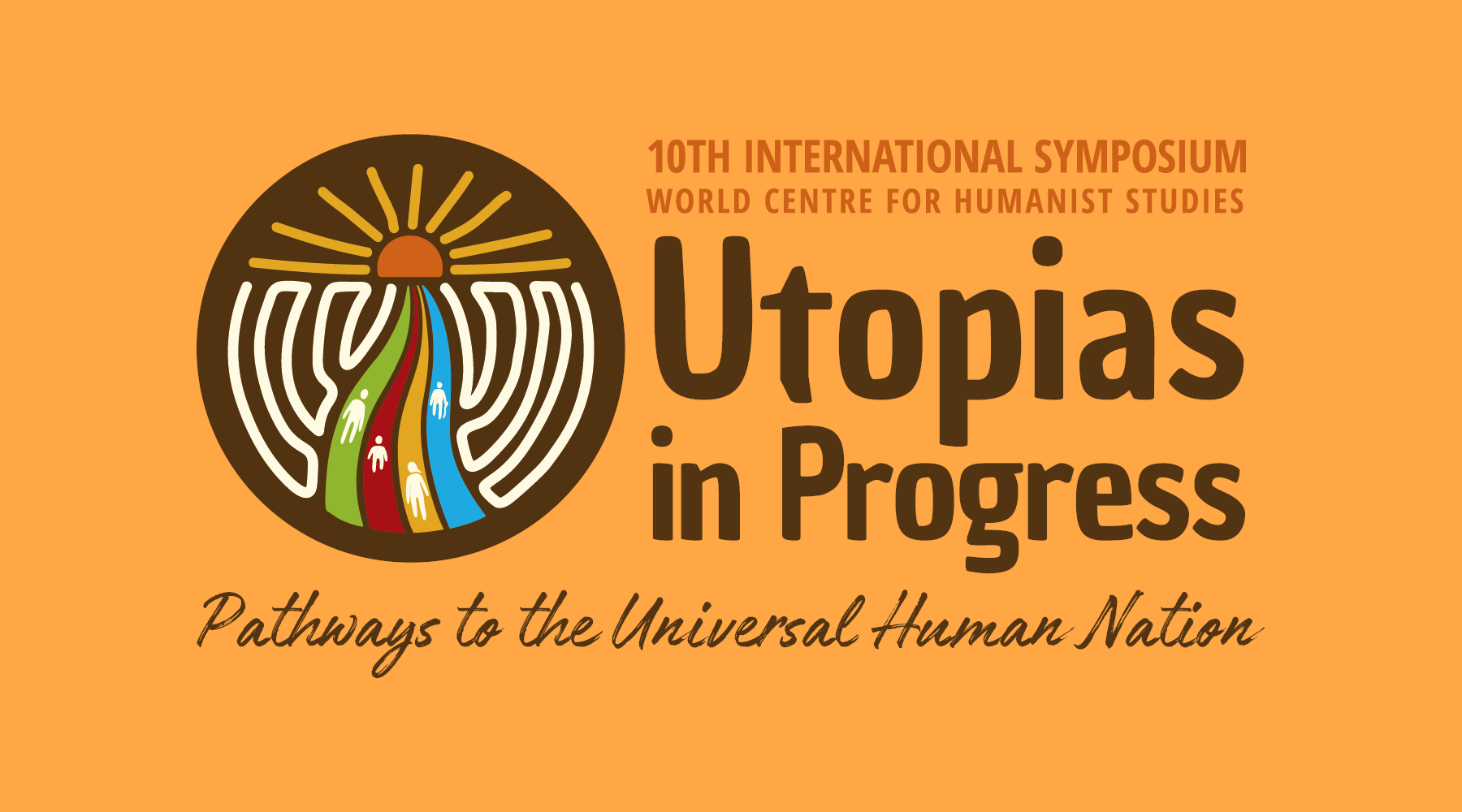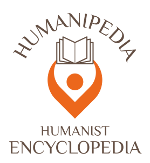Declaration of the IV Symposium of the World Centre of Humanist Studies, November 2014

– On the path to freedom –
From the beginning of history, humanity has evolved through working to achieve a better life. Yet today, across wide regions of the planet, and in spite of the enormous advances achieved by humankind, what we see are power, economic might, and technology being used to murder, impoverish, and oppress people – destroying, moreover, the future of the generations to come and the overall equilibrium of life on this planet.
However, while the aspiration of a more just and human world seems more distant every day, a new sensibility is emerging that understands this crisis as a stage for change and possibility, proposing new ways and behaviors to replace outdated structures that no longer serve as a reference. These transcendent positions are finding their way into the hearts of people but as yet fail to configure a new world in the social environment.
For human beings to be able to continue their evolution towards freedom and increased personal and social happiness, it is necessary that Good Knowledge grows and is affirmed.
Good Knowledge liberates
Good knowledge emerges right at the start of human history to address our species’ shortcomings. Its direction implies the transformation of the given conditions that cause pain and suffering. Good Knowledge assumes the clear intention to rebel against the absurdity of death, going far beyond the limits imposed by an apparently definite and unchanging natural state. This aim of the quest to overcome adverse circumstances is to expand human freedom.
Good Knowledge shares
Advances in knowledge are the result of the accumulation of human intentions. They are owned by the human species as a whole. Access to the use of knowledge cannot, therefore, be subject to any constraints. Good Knowledge rejects any attempt to monopolize or restrict the use of knowledge to improve human life. Good Knowledge declares the appropriation of knowledge by any particular sector to be null and void and strongly denounces the exclusionary intentions of groups in power. These groups not only seek dominion over the physical world, but they also try to control human subjectivity through the appropriation of the media, spreading violent models and values, and by manipulating information and trying to silence any attempt at change.
Good Knowledge proclaims the common and open ownership of science, technology and knowledge, it promotes collaboration and working with others for the wellbeing of all mankind.
Good Knowledge leads to Justice and Reconciliation
Good Knowledge opposes all forms of violence, be it physical, economic, racial, religious, psychological, moral or otherwise. Therefore, Good Knowledge struggles against injustice and aspires to a world of equal rights and real opportunities for all human beings.
Just as violence is rooted in the denial of what is human, Good Knowledge affirms a compassionate attitude derived from the recognition of a shared humanity in others that is inseparable from one’s own. Therefore, as a starting point for all valid conduct and as an indubitable moral axis, Good Knowledge proclaims the principle that says, “If you treat others as you want to be treated, you liberate yourself”.
At the same time, Good Knowledge expresses the need to overcome revenge – overt or hidden – as a way to purify the past, and instead proposes making a conscious attitude of personal and social reconciliation.
Good Knowledge bonds
As humankind has increasingly adapted to the environment with diverse evolutionary tactics, different peoples have expanded knowledge using different points of view. The attempt to standardize a single pathway to true knowledge is the result of violence through the imposition of a single cultural model. Good Knowledge drives mutual enrichment resulting from the multiplication and exchange of diverse knowledge, celebrating the fraternity that comes from the recognition of the contribution of all peoples.
Good Knowledge inspires
Historically, human beings have sought to give their lives meaning. This has led not only to the investigation of their surroundings, but also to a deepening within. Hence Good Knowledge is also directed towards revealing the sacred, investigating the phenomena that occur in the consciousness as inspired intuitions from the profound.
Just as science has been essential for the expansion of human possibilities, spirituality also collaborates to the growth of life free from superstition and dogma, showing paths to immortality. Thus, Good Knowledge posits the overcoming of naive counter positions, integrating the earthly and the eternal, pleasure and virtue, matter and energy; the complementation of phenomena towards unity.
Good Knowledge seeks to leap over prejudices accepted as unshakable truths, encouraging the shift towards an ever new and unlimited future.
Good Knowledge humanizes
Good knowledge disseminates the attitude of active nonviolence as the way to overcome the immorality of using knowledge to restrain, control, or destroy human life.
It proposes simultaneous social and personal transformation to disarm regressive factors putting human life in its existential dimension, allowing every human being to freely ask themselves about the meaning of life.
Good Knowledge, in summary, proclaims the necessity and the magnificent prospect of the humanization of the earth as a shared project. The image of a Universal Human Nation is the horizon that synthesizes the best intentions of Human Beings on the path to happiness, compassion, freedom and immortality.



